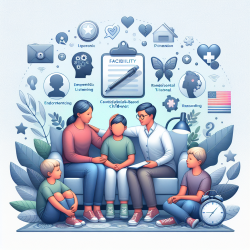Key Takeaways from the Research
The research underscores the importance of rigorous and valid evidence-based cost studies as a major challenge in the field. Here are some pivotal points:
- Telerehabilitation is a promising application area for telehomecare and telepsychiatry.
- The literature emphasizes the need for comprehensive TR assessment and evaluation tools.
- Assessment criteria should include medical, functional, and quality of life items.
Actionable Steps for Practitioners
Practitioners can implement the research outcomes to improve their practice and contribute to the growing body of evidence supporting TR. Here are some steps to consider:
- Adopt Comprehensive Assessment Tools: Utilize rigorous and comprehensive TR assessment tools to measure outcomes effectively. This will not only improve patient care but also build confidence among providers, payers, and end-users.
- Focus on Cost-Effectiveness: Conduct and participate in cost-effectiveness studies to demonstrate the financial benefits of TR. This can help in gaining support from policymakers and insurance companies.
- Engage in Further Research: Encourage and participate in further research to address gaps identified in the literature, such as the need for more robust cost studies and the integration of the International Classification on Functioning, Disability, and Health (ICF).
Conclusion
Telerehabilitation holds immense potential to improve access to quality healthcare services, especially for children requiring speech and language therapy. By adopting comprehensive assessment tools, focusing on cost-effectiveness, and engaging in further research, practitioners can significantly enhance their skills and contribute to the advancement of the field.
To read the original research paper, please follow this link: Telerehabilitation: Policy Issues and Research Tools










